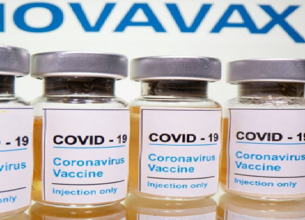MASKS, SANITISERS NOW ESSENTIAL COMMODITIES
14, Mar 2020

Prelims level : Agriculture, Ignorance, Subsidy, Marketing
Mains level : GS-III Issues related to direct and indirect farm subsidies and minimum support prices; Public Distribution System - objectives, functioning, limitations, revamping; issues of buffer stocks and food security; Technology Missions; Economics of Animal Rearing.
Why in News?
- The Centre recently brought masks and hand sanitisers under the Essential Commodities Act, 1955 (EC Act) in the wake of COVID-19 outbreak.
About the Essential Commodities Act:
- The Essential Commodities Act, 1955was enacted to ensure the easy availability of essential commodities to consumers and to protect them from exploitation by unscrupulous traders.
- The Act provides for the regulation and control of production, distribution and pricing of commodities which are declared as essential.
- Essential items under the Act include drugs, fertilisers, pulses and edible oils, and petroleum and petroleum products.
- The Act aim at maintaining/increasing supplies/securing equitable distribution and availability of these commodities at fair prices.
- Centre invokes the ECA Act’s provisions to impose stock limits in case of price/quantity distortions in the market to ensure adequate availability of essential commodities at reasonable prices.
- States are the implementing agenciesto implement the EC Act, 1955 and the Prevention of Black marketing & Maintenance of Supplies of Essential Commodities Act, 1980, by exercising powers delegated to them.
- The list of essential commodities is reviewed from time to timewith reference to their production and supply and in consultation with concerned Ministries/Departments.
- Currently, the restrictions like licensing requirement, stock limits and movement restrictions have been removed from almost all agricultural commodities.
- Exemptions:Wheat, pulses and edible oils, edible oilseeds and rice are certain exceptions.
- The recent amendment to the Legal Metrology (Packaged Commodities) Rules 2011 is linked to the ECA. The Government can fix the retail price of any packaged commodity that falls under the ECA.
What Masks and Sanitisers under ESA?
- Taking note of the fact that masks (2ply and 3ply surgical masks and N95 masks) and hand sanitisers are not easily available and vendors are charging exorbitant prices for them, the government declared these items as essential commodities till June 30 under the EC Act.
What are its Impact?
- Under this Act, the States and Union Territories can ask manufacturers to enhance their production capacity so that these products are widely available to consumers.
- Under the Act, an offender may be punished with an imprisonment up to seven years.
- The Consumer Affairs Ministry has also invoked the Prevention of Black marketing and Maintenance of Supplies of Essential Commodities Act, 1980 which would carry out action against those involved in overpricing and black marketing of the products.
Arguments against ECA:
- An archaic law:Essential Commodities Act has been in existence since 1955, when the economy was very different from what it is today. It was an economy ravaged by famine and food shortages.
- Difference between storage and hoarding:Recently there is evidence of interventions not working. It is because there is a distinction between storage and hoarding.
- As compared to older times, when the economy experiences acute shortages, today many shortage cases are actually that of hoarding.
- Stock limits led to onion price volatility:To control soaring prices of onions over the last few months, centre through ECA imposed stock limits on onions. Instead of decreasing prices, this actually increased price volatility.
- Although the restrictions on both retail and wholesale traders were meant to prevent hoarding and enhance supply in the market, the Survey showed that there was actually an increase in price volatility and a widening wedge between wholesale and retail prices.
- Lower stock limit led traders and wholesalers to immediately offload most of the kharif crop which led to a sharp increase in the volatility.
- Disincentivises storage infrastructure development:With too-frequent stock limits, traders may have no reason to invest in better storage infrastructure in the long run.
- Also, food processing industries need to maintain large stocks to run their operations smoothly. Stock limits curtail their operations. In such a situation, large scale private investments are unlikely to flow into food processing and cold storage facilities.
- Higher prices of medicines:Drug Price Control Order issued under the ECA also distorted the market and actually made medicines less affordable.
- The increase in prices is greater for more expensive formulations than for cheaper ones and for those sold in hospitals rather than retail shops.
- Rent seeking and Low conviction rates:Despite many raids conducted under the ECA in 2019, the conviction rate was abysmally low. The ECA only seems to enable rent-seeking and harassment.
Way Forward:
- Adequate supply:Given that almost all crops are seasonal, ensuring round-the-clock supply requires adequate build-up of stocks during the season.
- Without the ECA the common man would be at the mercy of opportunistic traders and shopkeepers.
- Genuine shortages:There can be genuine shortages triggered by weather-related disruptions in which case prices will move up.
- So, if prices are always monitored, farmers may have no incentive to farm.
- Difficult to differentiate between hording and shortage:It may not always be possible to differentiate between genuine stock build-up and speculative hoarding.
















